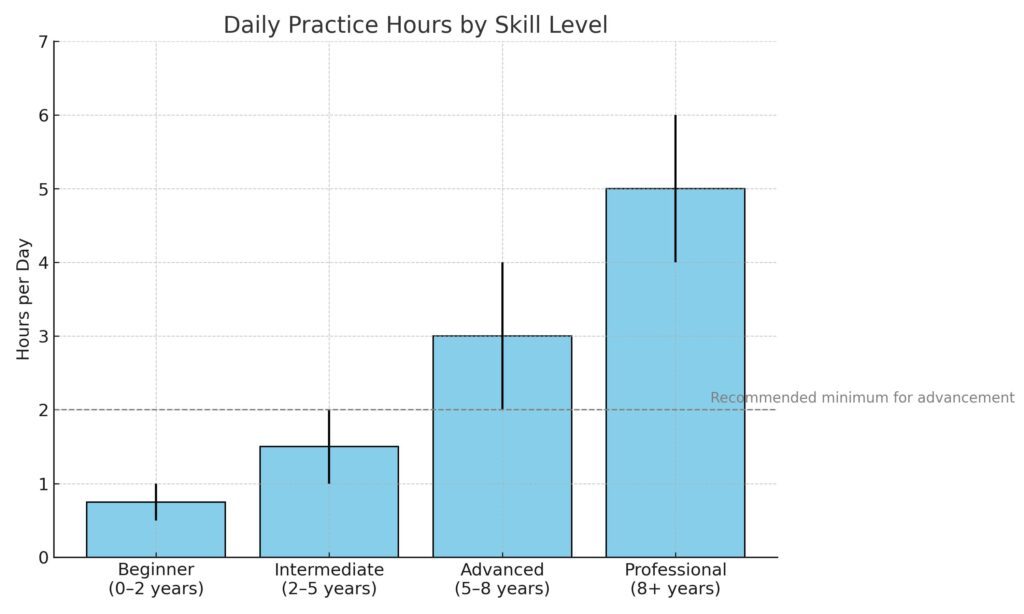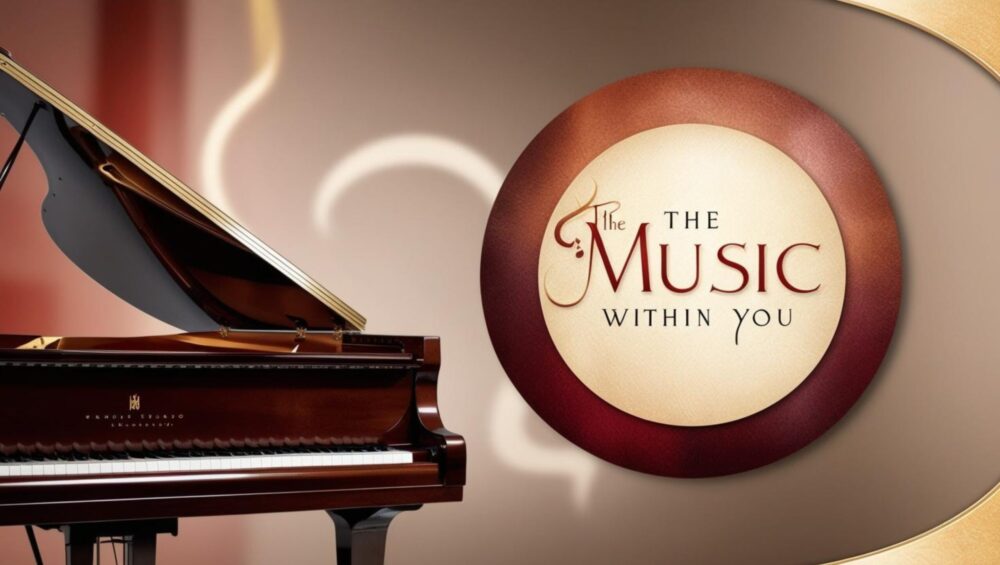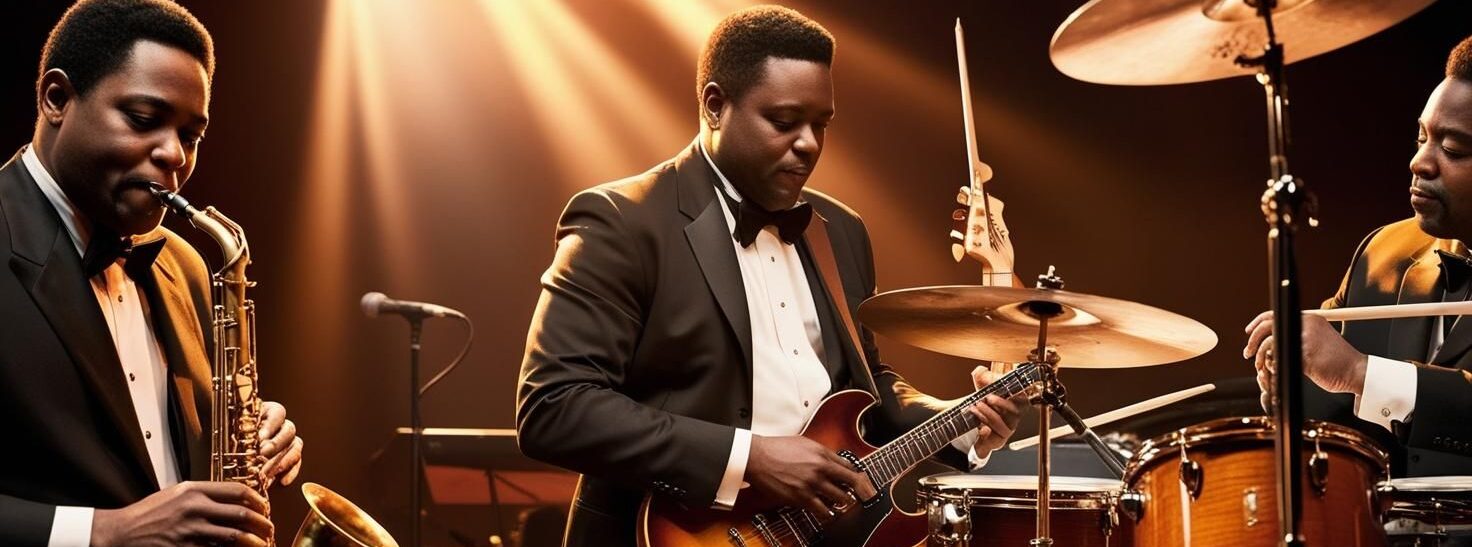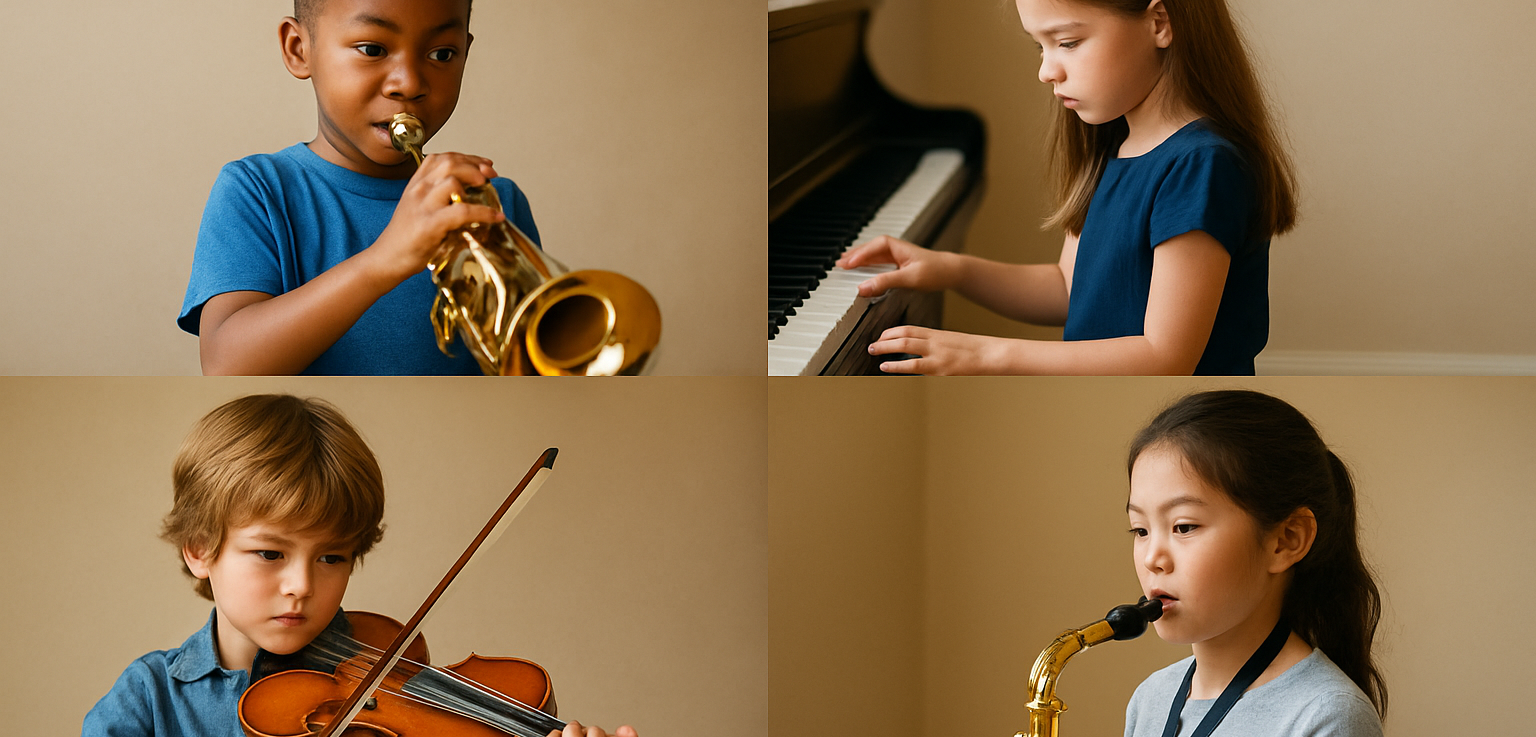One of the most common questions among aspiring musicians is: How much do I really need to practice to become a professional? Whether you dream of performing on stage, composing film scores, or playing in an orchestra, the journey from student to pro isn’t defined by talent alone—it’s defined by practice. But not just any practice—consistent, deliberate practice over time.
In this article, we’ll explore how much practice it takes to reach a professional level, the types of practice that matter most, and what you can do to stay on track in your musical journey.
The 10,000-Hour Rule: Myth or Milestone?
The concept of needing 10,000 hours of practice to become world-class was popularized by Malcolm Gladwell in his book Outliers, based on research by psychologist Anders Ericsson. While this idea has sparked debate, the underlying message remains valuable: mastery takes time and effort.
But here’s the truth—it’s not just the number of hours, it’s the quality of those hours.
A student could spend 10,000 hours casually noodling on their instrument and see only modest gains. On the other hand, focused, structured practice for fewer hours can yield professional-level skill more efficiently. That’s where deliberate practice comes in.
What Is Deliberate Practice?
Deliberate practice is a highly structured activity designed to improve performance. It’s not just about playing your favorite songs or repeating what you already know—it’s about targeting your weaknesses, setting specific goals, getting feedback, and pushing your limits.
Key elements include:
- Breaking down difficult passages
- Working with a teacher or coach
- Practicing slowly and accurately
- Repeating exercises until mastery
- Using a metronome or backing track for timing
- Recording and analyzing your own playing
If your practice includes these elements, you’re moving in the right direction.
Typical Practice Progression: Hours by Stage
Let’s look at how much a musician might practice at various stages of development:
Beginner (0–2 years):
30 minutes to 1 hour per day, 4–6 days a week
At this stage, students are building foundational skills: posture, tone, rhythm, and basic music reading. Short, frequent practice sessions are most effective.
Intermediate (2–5 years):
1 to 2 hours per day
This is the time to start increasing technical challenges, expanding repertoire, and learning expressive playing. Practice becomes more layered—scales, etudes, sight reading, and performance pieces.
Advanced (5–8 years):
2 to 4 hours per day
Advanced students are polishing skills, refining tone, and preparing for competitions, recitals, or auditions. Many start studying with private instructors or attend music schools.
Professional Level (8+ years):
4 to 6 hours per day (or more)
Conservatory students, touring musicians, and orchestral performers may practice multiple hours daily. Their routines are structured and purpose-driven, often including warm-ups, technique drills, repertoire, and mental practice.
Quality Over Quantity: Making Every Minute Count
Practicing six hours a day won’t help if it’s unfocused. In fact, two hours of deep, concentrated practice can often outperform longer sessions that are distracted or aimless.
Here are some ways to make your practice more effective:
- Set daily goals: Know what you want to achieve before you start.
- Use a timer: Stick to 15–20 minute focus blocks with short breaks.
- Keep a practice journal: Track your progress and note trouble spots.
- Record yourself: Listening back reveals details you might miss in real time.
- Stay mindful: Avoid playing on autopilot. Stay mentally engaged.
Plateaus Are Part of the Process
As you progress, you might experience plateaus where improvement feels stalled. This is normal and happens to every musician. Sometimes your brain just needs time to consolidate what you’ve learned.
To push through:
- Change up your routine: Introduce new exercises or repertoire.
- Get feedback: A teacher or mentor can offer perspective.
- Rest strategically: Short breaks or even a few days off can refresh your focus.
What About Talent?
Many beginners worry they’re not “naturally talented” enough to go pro. While some people may have a head start in rhythm or ear training, talent is only a small part of the equation. What matters more is:
- Work ethic
- Motivation
- Problem-solving
- Grit
The most successful musicians are not always the most gifted—they’re the most dedicated.
Practice as a Lifestyle
Becoming a professional musician isn’t just about practicing more—it’s about building your life around your craft. This includes:
- Attending live performances
- Studying recordings
- Learning music theory and history
- Connecting with other musicians
- Staying physically and mentally healthy
Over time, music becomes not just a skill you develop, but a part of who you are.
Final Thoughts: Your Path Is Unique
There’s no one-size-fits-all timeline to becoming a professional musician. Some reach that level in 8 years, others in 15. The key is consistency, smart practice, and staying inspired.
So, how much practice does it take?
As much as it takes to move from where you are now to where you want to be. And that journey is worth every minute.
For more tips on improving your musical skills, choosing the right instrument, or finding the perfect practice routine, visit us at TheMusicWithinYou.com.
Let your music grow with you—one note at a time.






